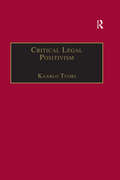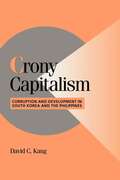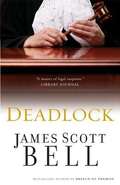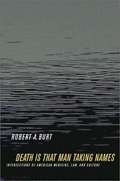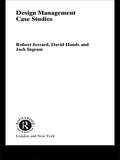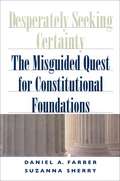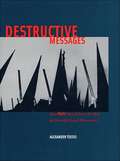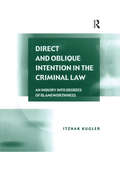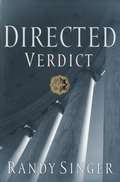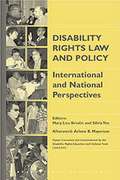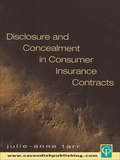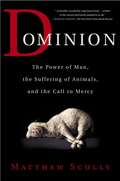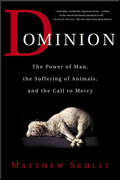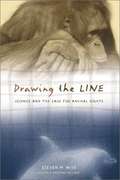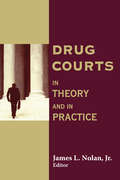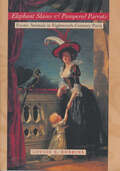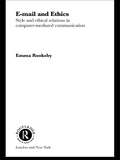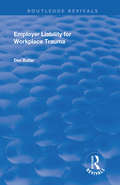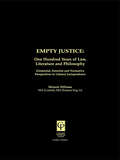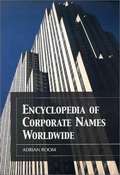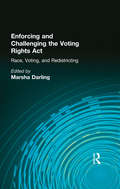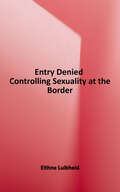- Table View
- List View
Critical Legal Positivism (Applied Legal Philosophy)
by Kaarlo TuoriThis profound and scholarly treatise develops a critical version of legal positivism as the basis for modern legal scholarship. Departing from the formalism of Hart and Kelsen and blending the European tradition of Weber, Habermas and Foucault with the Anglo-American contributions of Dworkin and MacCormick, Tuori presents the normative and practical faces of law as a multilayered phenomenon within which there is an important role for critical legal dogmatics in furthering law's self-understanding and coherence. Its themes also resonate with importance for the development of the European legal system.
Crony Capitalism: Corruption and Development in South Korea and the Philippines (Cambridge Studies in Comparative Politics)
by David C. Kang Robert H. Bates Ellen Comisso Peter Lange Joel Migdal Helen MilnerWhy has the literature on Asian development not addressed the issue of money politics in Korea? How can we reconcile the view of an efficient developmental state in Korea before 1997 with reports of massive corruption and inefficiency in that same country in 1998 and 1999? Politics is central to the answer. <p><p>In this book the author makes two arguments. First, both Korea and the Philippines experienced significant corruption throughout the post-independence era. Second, political - not economic - considerations dominated policy making in both countries. Focusing on the exchange of favors for bribes between state and business, the author argues that politics drove policy choices, that bureaucrats were not autonomous from political interference in setting policy, and that business and political elites wrestled with each other over who would reap the rents to be had. Even in Korea, corruption was far greater than the conventional wisdom allows.
Deadlock
by James Scott BellShe is a Supreme Court Justice. She is an atheist. And she is about to encounter the God of the truth and justice she has sworn to uphold. For years, Millicent Hollander has been the consistent swing vote on abortion and other hot-button issues. Now she's poised to make history as the first female Chief Justice of the United States Supreme Court. But something is about to happen that no one has counted on, least of all Hollander: a near-death experience that will thrust her on a journey toward God. Skeptically, fighting every inch of the way, Hollander finds herself dragged toward belief in something she has never believed in -- while others in Washington are watching her every step. Too much is at stake to let a Christian occupy the country's highest judicial office. Even as Hollander grapples with the interplay between faith and the demands of her position, and as she finds answers through her growing friendship with Pastor Jack Holden, a hidden web of lies, manipulation, and underworld connections is being woven around her. It could control her. It could destroy her reputation. Unless God intervenes, it could take her out of the picture permanently.
Death Is That Man Taking Names: Intersections of American Medicine, Law, and Culture
by Robert A. BurtIn this profound and subtle account of psychological and social forces underlying American cultural attitudes toward death, Robert A. Burt maintains that unacknowledged ambivalence is likely to undermine the beneficent goals of post-1970s reforms and harm the very people these changes were intended to help.
Design Management Case Studies
by David Hands Robert Jerrard Jack IngramFirst Published in 2002. Routledge is an imprint of Taylor & Francis, an informa company.
Desperately Seeking Certainty: The Misguided Quest for Constitutional Foundations
by Daniel A. Farber Suzanna SherryIrreverent, provocative, and engaging, Desperately Seeking Certainty attacks the current legal vogue for grand unified theories of constitutional interpretation. On both the Right and the Left, prominent legal scholars are attempting to build all of constitutional law from a single foundational idea. Dan Farber and Suzanna Sherry find that in the end no single, all-encompassing theory can successfully guide judges or provide definitive or even sensible answers to every constitutional question. Their book brilliantly reveals how problematic foundationalism is and shows how the pragmatic, multifaceted common law methods already used by the Court provide a far better means of reaching sound decisions and controlling judicial discretion than do any of the grand theories.
Destructive Messages: How Hate Speech Paves the Way For Harmful Social Movements (Critical America #27)
by Alexander TsesisDestructive Messages argues that hate speech is dangerous not only when it poses an immediate threat of harm. It is also dangerous when it is systematically developed over time, becoming part of a culturally acceptable dialogue which can foster the persecution of minorities.Tsesis traces a causal link between racist and biased rhetoric and injustices like genocide and slavery. He shows that hate speech and propaganda, when left unregulated, can weave animosity into the social fabric to such a great extent that it can cultivate an environment supportive of the commission of hate crimes. Tsesis uses historical examples to illuminate the central role racist speech played in encouraging attitudes that led to human rights violations against German Jews, Native Americans, and African Americans, and also discusses the dangers posed by hate speech spread on the Internet today. He also offers an examination of the psychology of scapegoating.Destructive Messages argues that when hate speech is systematically developed over time it poses an even greater threat than when it creates an immediate clear and present danger. Tsesis offers concrete suggestions concerning how to reform current law in order to protect the rights of all citizens.
Developing Countries in the Gatt Legal System
by Robert E. HudecIn this reissued edition of the classic work Developing Countries in the GATT Legal System, Robert E. Hudec's clear insight on the situation of developing countries within the international trade system is once again made available. Hudec is regarded as one of the most prominent commentators on the evolution of the current international trade regime, and this long out-of-print book offers his analysis of the dynamics playing out between developed and developing nations. A significant contribution when the book was first published, this work continues to serve as a thoughtful and important guide to how current and future trade policy must seriously adapt to the demands of the developing world. This new edition includes a new introduction by J. Michael Finger that examines Hudec's work to understand how the GATT got into its current historical-institutional predicament and the lasting impact of his work on current research on international trade systems.
Direct and Oblique Intention in the Criminal Law: An Inquiry into Degrees of Blameworthiness
by Itzhak KuglerThe subject of intention in the criminal law is currently causing many debates among criminal lawyers. This compelling and probing volume addresses two key questions: should the criminal law distinguish between direct intention and recklessness, and what should the law be concerning cases of oblique intention - i.e. cases in which the actor does not act in order to cause the proscribed result, but is nevertheless practically certain that his, or her, action will cause it? The discussion is divided into two parts with the first being devoted to the question of whether it is justified to grade offences based on the distinction between intention and recklessness. The second part deals with offences in which intention is required as a condition for the criminalisation of the conduct and in the context of which reckless actors are not exposed to criminal liability. The book explores the issue of intention from the viewpoint of degrees of moral culpability and it discusses, inter alia, the doctrine of double effect, the possibility that the law in cases of oblique intention should not be the same for all crimes of intention , and the possibility of using a moral formula in the definition of certain offences. The discussion also addresses many other criminal law issues, including the philosophy of punishment, the role of motives in determining degrees of blameworthiness, sentencing, stigma, and criminal attempts.
Directed Verdict
by Randy SingerIn Saudi Arabia, two American missionaries are targeted by the infamous religious police. The man is killed; his wife arrested and deported to the United States. Compelled by the injustice of her plight, an attorney files an unprecedented civil rights suit against Saudi Arabia and the ruthless head of the Muttawa.
Disability Rights Law and Policy: International and National Perspectives
by Mary Lou Breslin Silvia YeeThis volume describes the extraordinary success of the international political movement of people with disabilities to include disability as a human rights issue. The authors are renowned disability rights attorneys, university professors, and activists who practice, teach and work internationally.
Disclosure and Concealment in Consumer Insurance Contracts
by Julie-Ann TarrThis book provides an in-depth examination of the theoretical,legal, social and economic foundations to disclosure and concealment of information in relation to the formation of consumer insurance contracts. A comparative treatment of this issue is undertaken with particular attention given to the judicial and legislative approaches adopted in the United Kingdom, the United States of America, Australia and New Zealand. It will be relevant to those researching and studying insurance law, all legal practitioners involved with the formation of consumer insurance contracts and non-legal practitioners working within the field of insurance.
Doctored Evidence
by Michael BiehlA mystery novel in the Karen Hayes series previously published in hardcover by Bridgeworks, now in paperback. Karen Hayes is a smart and courageous hospital attorney. In this novel a medical device fails and the patient dies on the operating table. Was it an accident, or murder? Hayes must find out: her job and her life depend on it.
Dominion: The Power of Man, the Suffering of Animals, and the Call to Mercy
by Matthew ScullyAs an eye opening, painful and infuriating, insightful and rewarding book, Dominion is a plea for human benevolence and mercy, a scathing attack on those who would dismiss animal activists as mere sentimentalists, and a demand for reform from the government down to the individual.
Dominion: The Power of Man, the Suffering of Animals, and the Call to Mercy
by Matthew Scully"And God said, Let us make man in our image, after our likeness; and let them have dominion over the fish of the sea, and over the fowl of the air, and over the cattle, and over all the earth, and over every creeping thing that creepeth upon the earth." --Genesis 1:24-26In this crucial passage from the Old Testament, God grants mankind power over animals. But with this privilege comes the grave responsibility to respect life, to treat animals with simple dignity and compassion.Somewhere along the way, something has gone wrong.In Dominion, we witness the annual convention of Safari Club International, an organization whose wealthier members will pay up to $20,000 to hunt an elephant, a lion or another animal, either abroad or in American "safari ranches," where the animals are fenced in pens. We attend the annual International Whaling Commission conference, where the skewed politics of the whaling industry come to light, and the focus is on developing more lethal, but not more merciful, methods of harvesting "living marine resources." And we visit a gargantuan American "factory farm," where animals are treated as mere product and raised in conditions of mass confinement, bred for passivity and bulk, inseminated and fed with machines, kept in tightly confined stalls for the entirety of their lives, and slaughtered in a way that maximizes profits and minimizes decency.Throughout Dominion, Scully counters the hypocritical arguments that attempt to excuse animal abuse: from those who argue that the Bible's message permits mankind to use animals as it pleases, to the hunter's argument that through hunting animal populations are controlled, to the popular and "scientifically proven" notions that animals cannot feel pain, experience no emotions, and are not conscious of their own lives.The result is eye opening, painful and infuriating, insightful and rewarding. Dominion is a plea for human benevolence and mercy, a scathing attack on those who would dismiss animal activists as mere sentimentalists, and a demand for reform from the government down to the individual. Matthew Scully has created a groundbreaking work, a book of lasting power and importance for all of us.
Drawing the Line: Science and the Case for Animal Rights
by Steven M. WiseAre we ready for parrots and dolphins to be treated as persons before the law? In this unprecedented exploration of animal cognition along the evolutionary spectrum--from infants and children to other intelligent primates, from dolphins, parrots, elephants, and dogs to colonies of honeybees--Steve Wise finds answers to the big question in animal rights today: Where do we draw the line? Readers will be enthralled as they follow Wise's firsthand account of the world's most famous animal experts at work: Cynthia Moss and the touchingly affectionate families of Amboseli; Irene Pepperberg and her amazing and witty African Grey parrot, Alex; and Penny Paterson with the formidable gorilla Koko. In many cases, Wise was able to sustain an extended conversation with these extraordinary creatures. No one with even a shred of curiosity about animal intelligence or justice will want to miss this book.
Drug Courts: In Theory and in Practice (Social Problems And Social Issues Ser. #14)
by Jr. NolanDrug courts offer offenders an intensive court-based treatment program as an alternative to the normal adjudication process. Begun in 1989, they have since spread dramatically throughout the United States. In this interdisciplinary examination of the expanding movement, a distinguished panel of legal practitioners and academics offers theoretical assessments and on-site empirical analyses of the workings of various courts in the United States, along with detailed comparisons and contrasts with related developments in Britain. Practitioners, politicians, and academics alike acknowledge the profound impact drug courts have had on the American criminal justice system. From a range of disciplinary perspectives, contributors to this volume seek to make sense of this important judicial innovation. While addressing a range of questions, Drug Courts also aims to achieve a careful balance between focused empirical studies and broader theoretical analyses of the same phenomenon. The volume maintains an analytical concentration on drug courts and on the important practical, philosophical, and jurisprudential consequences of this unique form of therapeutic jurisprudence.Drug courts depart from the practices and procedures of typical criminal courts. Prosecutors and defense counsel play much-reduced roles. Often lawyers are not even present during regular drug court sessions. Instead, the main courtroom drama is between the judge and client, both of whom speak openly and freely in the drug court setting. Often accompanying the client is a treatment provider who advises the judge and reviews the client's progress in treatment. Court sessions are characterized by expressive and sometimes tearful testimonies about the recovery process, and are often punctuated with applause from those in attendance. Taken together, the chapters provide a variety of perspectives on drug courts, and extend our knowledge of the birth and evolution of a new movement. Drug Courts<
Early Ideas on Sovereign Bankruptcy Reorganization: A Survey
by Kenneth Rogoff Jeromin ZettelmeyerA report from the International Monetary Fund.
Elephant Slaves & Pampered Parrots: Exotic Animals in Eighteenth-Century Paris (Animals, History, Culture)
by Louise E. RobbinsThis lively history “adds a new dimension to our understanding of 18th-century France” by exploring the Parisian fashion of importing exotic animals (American Historical Review).In 1775, a visitor to Laurent Spinacuta’s Grande Ménagerie at the annual winter fair in Paris would have seen two tigers, several kinds of monkeys, an armadillo, an ocelot, and a condor—in all, forty-two live animals. In the streets of the city, one could observe performing elephants and a fighting polar bear. Those looking for unusual pets could purchase parrots, flying squirrels, and capuchin monkeys. The royal menagerie at Versailles displayed lions, cranes, an elephant, a rhinoceros, and a zebra, which in 1760 became a major court attraction.For Enlightenment-era Parisians, exotic animals piqued scientific curiosity and conveyed social status. Their variety and accessibility were a boon for naturalists like Buffon, author of Histoire naturelle. Louis XVI use his menagerie to demonstrate his power, while critics saw his caged animals as metaphors of slavery and oppression. In her engaging account, Robbins considers nearly every aspect of France’s obsession with exotic fauna, from the animals’ transportation and care to the inner workings of the oiseleurs’ (birdsellers’) guild. Based on wide-ranging research, Elephant Slaves and Pampered Parrots offers a major contribution to the history of human-animal relations, eighteenth-century culture, and French colonialism.
Email and Ethics: Style and Ethical Relations in Computer-Mediated Communications (Routledge Studies in Contemporary Philosophy)
by Emma RooksbyE-mail and Ethics explores the ways in which interpersonal relations are affected by being conducted via computer-mediated communication.The advent of this channel of communication has prompted a renewed investigation into the nature and value of forms of human association. Rooksby addresses these concerns in her rigorous investigation of the benefits, limitations and implications of computer-mediated communication.With its depth of research and clarity of style, this book will be of essential interest to philosophers, scholars of communication, cultural and media studies, and all those interested in the importance and implications of computer-mediated communication.
Employer Liability for Workplace Trauma (Routledge Revivals)
by Des ButlerThis title was first published in 2002.This book offers an intriguing examination of the law concerning liability for psychiatric injury suffered by employees in the workplace. Included among these are employees confronting the risk of death or injury in the course of their normal employment, such as police or fire-fighters, those confronting death or injury out of their ordinary course of employment, such as accidents at work, and those possibly exposed to health-threatening circumstances, such as dust in the workplace. Also considered are employees who suffer mental health problems resulting from environmental factors, such as bullying, overwork and disciplinary measures. The amount of damages recovered in such actions can be substantial and this book examines the extent of the employer’s liability, as well as providing a psychiatric medicine perspective and a detailed analysis of the current state of the law in England, Wales and Australia.
Empty Justice: One Hundred Years of Law Literature and Philosophy
by Melanie WilliamsUtilising literature as a serious source of challenges to questions in philosophy and law, this book provides a fresh perspective not only upon the inculcation of the legal subject, but also upon the relationship between modernism, postmodernism and how such concepts might evolve in the construction of community ethics. The creation and role of the legal subject is just one aspect of jurisprudential enquiry now attracting much attention. How do moral values act upon the subject? How do moral 'systems' impinge upon the subject - jurist and judged - throughout the 20th century, when religious values are called into question, when 'existential' doubt prevails? To what extent do issues of gender and identity inform these questions? Many sources can provide insights into these issues: this book intends to concentrate upon fiction as just such a resource. However it is not just another law and literature compilation. Spanning the last century, each chapter will attempt to fulfil four objectives: to identify key texts in relation to a given period; to look for linked legal and philosophical developments from that period; to establish fresh links from these sources regarding concrete doctrinal, or practical legal questions, and finally draw a more general inference about the legal subject and the frequently less evident feminine citizen-subject. Central to this approach will be the consideration of contemporary case law and legal materials as social documents of the relationship between law and the wider community.
Encyclopedia of Corporate Names Worldwide
by Adrian RoomEntries in this encyclopedia give the stories behind some 3,500 commercial names, mainly from America and Britain but including some from European countries.
Enforcing and Challenging the Voting Rights Act: Race, Voting, and Redistricting (Controversies in Constitutional Law #2)
by Marsha DarlingFirst Published in 2002. Routledge is an imprint of Taylor & Francis, an informa company.
Entry Denied: Controlling Sexuality at the Border
by Eithne LuibheidLesbians, prostitutes, women likely to have sex across racial lines, "brought to the United States for immoral purposes, " or "arriving in a state of pregnancy" -- national threats, one and all. Since the late nineteenth century, immigrant women's sexuality has been viewed as a threat to national security, to be contained through strict border-monitoring practices. By scrutinizing this policy, its origins, and its application, Eithne Luibheid shows how the U.S. border became a site not just for controlling female sexuality but also for contesting, constructing, and renegotiating sexual identity.Initially targeting Chinese women, immigration control based on sexuality rapidly expanded to encompass every woman who sought entry to the United States. The particular cases Luibheid examines -- efforts to differentiate Chinese prostitutes from wives, the 1920s exclusion of Japanese wives to reduce the Japanese-American birthrate, the deportation of a Mexican woman on charges of lesbianism, the role of rape in mediating women's border crossings today -- challenges conventional accounts that attribute exclusion solely to prejudice or lack of information. This innovative work clearly links sexuality-based immigration exclusion to a dominant nationalism premised on sexual, gender, racial, and class hierarchies.
